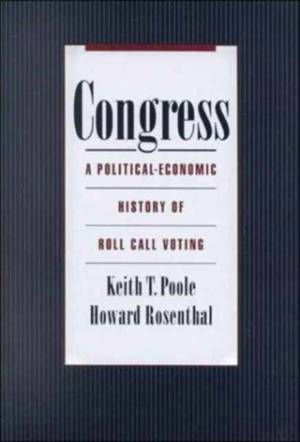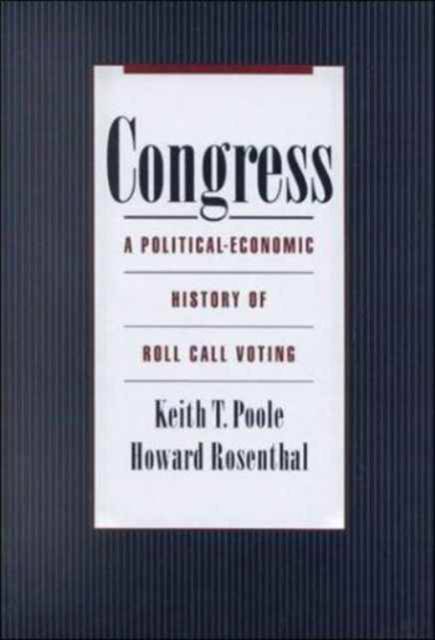
- Retrait gratuit dans votre magasin Club
- 7.000.000 titres dans notre catalogue
- Payer en toute sécurité
- Toujours un magasin près de chez vous
- Retrait gratuit dans votre magasin Club
- 7.000.0000 titres dans notre catalogue
- Payer en toute sécurité
- Toujours un magasin près de chez vous
Congress
A Political-economic History of Roll Call Voting
Keith T. Poole, Howard Rosenthal
Livre broché
20,95 €
+ 41 points
Description
In this wide-ranging study, the authors use 200 years of congressional roll call voting as a framework for an interpretation of important episodes in American political and economic history. They also trace the voting patterns of Congress throughout the country's history.
Spécifications
Parties prenantes
- Auteur(s) :
- Editeur:
Contenu
- Nombre de pages :
- 312
Caractéristiques
- EAN:
- 9780195142426
- Date de parution :
- 01-10-00
- Format:
- Livre broché
- Dimensions :
- 156 mm x 234 mm
- Poids :
- 456 g

Les avis
Nous publions uniquement les avis qui respectent les conditions requises. Consultez nos conditions pour les avis.






